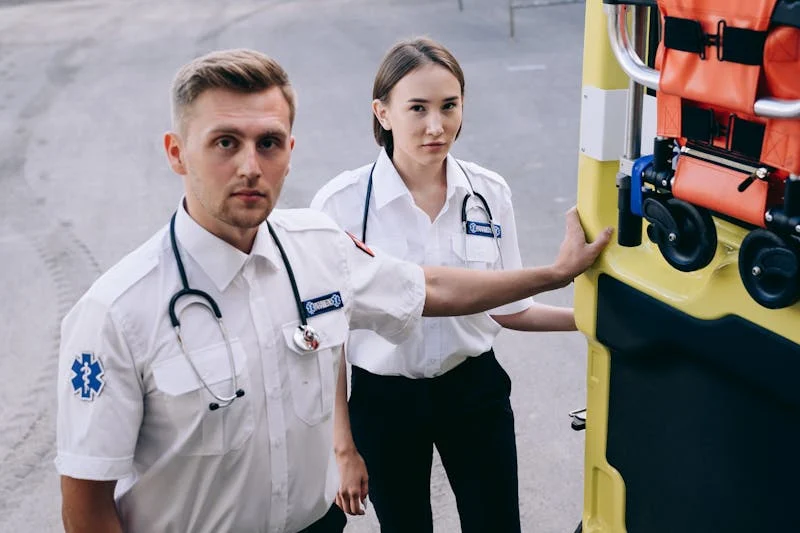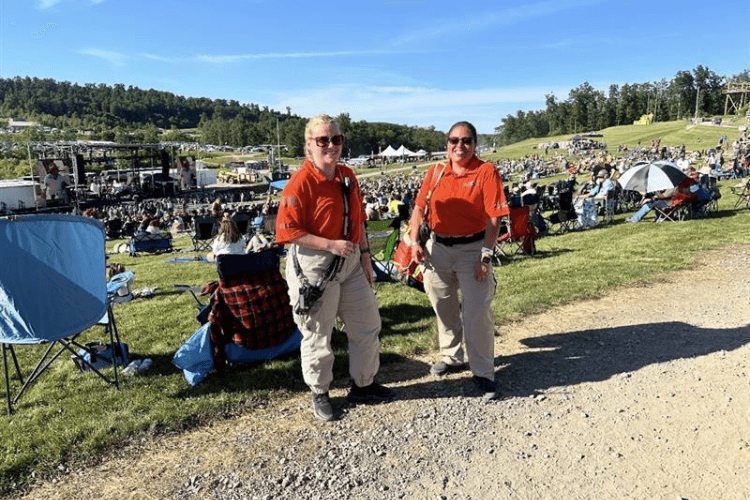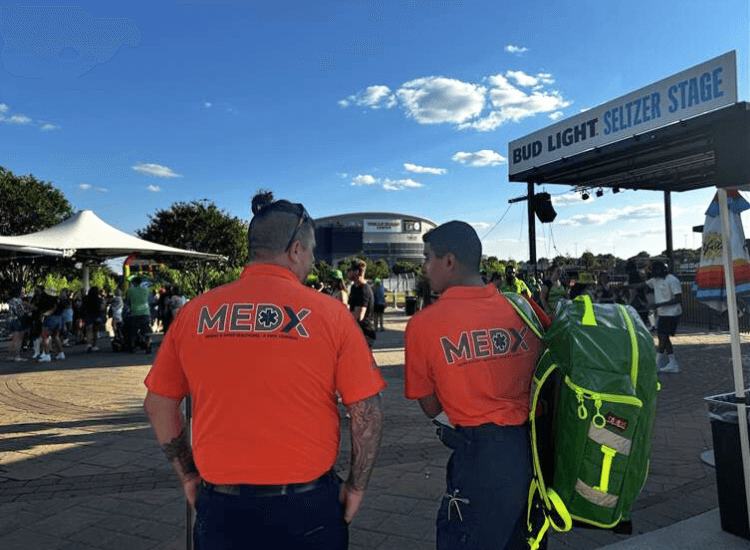How to Arrange Emergency Medical Services for a Corporate Event?
Planning a corporate event involves considering the safety and well-being of all attendees. Ensuring that you have robust emergency medical services on standby is crucial. These services not only provide immediate medical attention but also help manage potential risks effectively. For expert guidance on setting up emergency services, explore MedX Event Medical Services, your partner in ensuring event safety. Understanding Your Event’s Medical Needs Assessing the Scale and Scope of the Event The first step in arranging emergency medical services for a corporate event is to assess its scale and scope. Consider the number of attendees, the duration of the event, and the venue layout. Larger events with more participants may require more comprehensive medical services. Also, think about the type of event—whether it’s indoor or outdoor, as outdoor events often present different challenges and needs. Identifying Potential Risks and Necessary Preparations Evaluate potential health risks that could arise during the event. This could include food-related illnesses, physical injuries from activities, or issues related to weather conditions for outdoor events. Once risks are identified, prepare accordingly by planning medical response strategies, including first aid measures and emergency medical responses. Ensure that all scenarios are covered to prevent and respond to health emergencies effectively. Selecting the Right Medical Service Provider Criteria for Choosing a Provider When choosing a medical service provider for your corporate event, consider the following criteria: Experience and Reputation: Look for providers with experience in handling corporate events similar to yours. Check reviews and testimonials to gauge their reputation. Service Range: Ensure the provider offers the services you need, such as onsite medical personnel, emergency equipment, and ambulance availability. Response Capability: Evaluate their ability to respond to emergencies quickly and efficiently, which is crucial for the safety of your event participants. Contracting and Agreements After selecting a provider, the next step is to enter into a formal agreement. This contract should outline: Services Provided: Clearly list all the medical services that will be provided, including details such as the number of medical staff, types of equipment, and hours of operation. Costs and Payments: Detail the cost structure, including any deposits required, payment schedules, and cancellation policies. Liabilities and Insurance: Understand who bears the liability in case of medical emergencies and ensure the provider has adequate insurance coverage. Staffing and Equipment Requirements Necessary Medical Personnel The staffing for medical services at a corporate event should be proportionate to the event’s scale and potential risks. Essential personnel often include: Paramedics and EMTs (Emergency Medical Technicians): They provide immediate response to emergencies, offering treatments such as CPR and trauma care. Nurses: For events where ongoing care might be needed on-site, such as multi-day conferences. General Practitioners: Useful for events with a diverse demographic, able to address a wider range of medical issues. Specialists (if necessary): Depending on the nature of the event, specialists such as sports doctors or allergists may be required. Staff qualifications should be verified, including certifications in CPR, advanced life support, and any other relevant training that ensures they are prepared to handle the specific needs of your event. Essential Medical Equipment To adequately prepare for any potential medical emergency, your event must be equipped with the following essential medical equipment: Automated External Defibrillators (AEDs): For use in cardiac emergencies, strategically placed for quick access. First Aid Kits: Stocked with supplies like bandages, antiseptics, and medications for treating minor injuries and conditions such as headaches or allergic reactions. Stretchers and Wheelchairs: To assist in the safe transport of individuals who cannot walk or need to be moved quickly. Oxygen Tanks: Essential for respiratory issues and more serious medical conditions. Communication Devices: Such as radios and phones, to ensure medical staff can communicate effectively both among themselves and with event organizers. Each piece of equipment should be checked and maintained to ensure it is in working order before the event. Additionally, the placement of equipment should be planned to ensure that it is both secure and easily accessible in an emergency. Coordination with Venue and Local Health Authorities Venue Safety Protocols Effective coordination with the event venue is crucial for ensuring that all safety and health protocols are in place. This includes: Emergency Access and Egress Points: Confirming that all emergency access routes are clear and accessible for ambulances and emergency personnel. This also involves mapping out the fastest routes in and out of the venue. Venue-specific Safety Features: Understanding the specific safety features of the venue, such as fire extinguishers, sprinkler systems, and emergency lighting. Coordination Meetings: Holding meetings with venue managers to align on safety protocols, emergency response plans, and the placement of medical stations. These should be documented and shared with all relevant staff. This preparation ensures that the venue’s infrastructure supports quick and efficient medical responses, enhancing overall event safety. Compliance with Local Health Regulations Ensuring compliance with local health and safety regulations is another critical aspect of event planning: Permits and Licenses: Secure all necessary permits and licenses that authorize the event to host large gatherings and provide medical services. This might include health department permits, especially if food and beverages are served. Regulation Compliance: Adhere to local health regulations which may dictate the number and type of medical personnel required, specific medical equipment on-site, and the procedures for emergency response. Liaison with Health Officials: Establishing a direct contact with local health authorities can facilitate smoother compliance and quicker response in case additional health services are needed during the event. Ensuring that all aspects of the event are in line with local health regulations not only protects attendees but also shields the event organizers from legal repercussions and enhances the event’s reputation for safety and professionalism. Training and Preparing Your Team Emergency Response Training for Staff Ensuring that all event staff, not just the medical team, are trained in basic emergency response is vital for handling any potential crises effectively. Here are key aspects of this training: Basic First Aid and CPR: All event staff should be familiar with basic first aid procedures
How to Arrange Emergency Medical Services for a Corporate Event? Read More »







